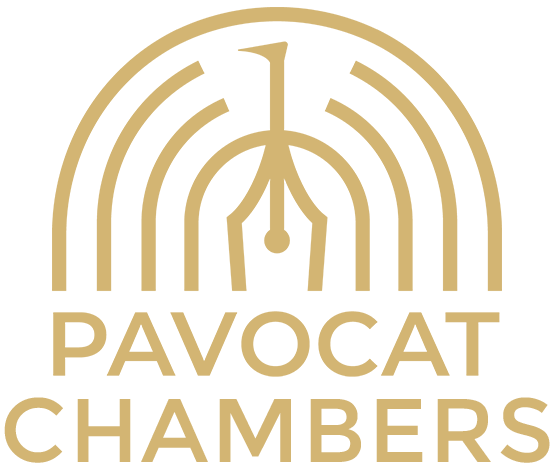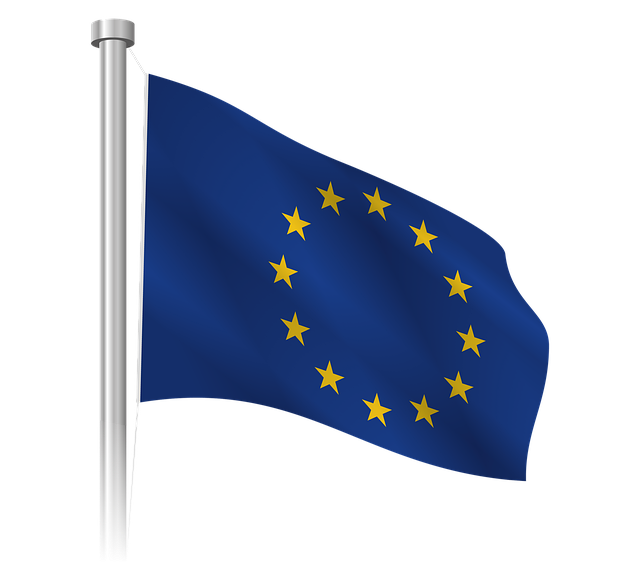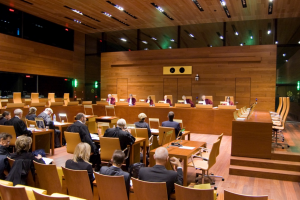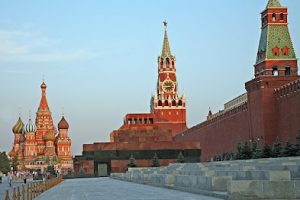In the last two weeks, the EU General Court upheld one application and dismissed seven others made by Russian businessmen and businesswomen against the sanctions imposed on them in March or April 2022 by the Council of the European Union (‘Council’) in the aftermath of the invasion of Ukraine by Russia¹
These are the first rulings on Russian oligarchs and their family members (after Prigozhina² ) and provide important findings on how future challenges of individual sanctions against Russian businesspersons³ will be handled by the General Court under the EU Russian sanctions framework.
The Court provided elaborate clarifications on Council Decision 2022/329’s Criterion (g), including on how it interprets ‘leading businessperson’ in the Russian context and what is to be understood by ‘economic sector providing a substantial source of revenue for the Russian government’⁴.
The ‘association’ designation criterion by which the family members of leading businesspersons are sanctioned under the EU Russian sanctions regime was also further clarified. ‘Leading’ means influence and importance.
The General Court made an elaborate analysis of Criterion (g): ‘leading businesspersons’ which implied ‘influence’ linked to the exercise of an ‘activity in economic sectors which provide a substantial source of income to the Russian Government’. The Council’s aim with this criterion was to exploit the influence that the category of persons concerned is likely to exert on the Russian regime, by encouraging them to put pressure on it to change its policy.
To be ‘leading businesspersons’ means the individuals’ importance, having regard, as the case may be, to their professional status, the importance of their economic activities, the scale of their capital holdings or their functions within one or more companies in which they carry out those activities. (Khudaverdyan, paras. 79 and 80 and Rashnikov, paras. 66 and 67 of the judgments.)
Such an interpretation was supported by the objective of the sanctions, i.e. to put pressure on the Government of Russia and to increase the cost of actions by Russia aimed at undermining the territorial integrity, sovereignty and independence of Ukraine.
The Court also found that a ‘leading businessperson’ is any important businessman, who is at the top of the list of the richest businessmen in Russia or who, although not at the top of such a list, may be described as such, in particular because of the size of his capital holdings or his functions within one or more large companies. (Shulgin, para. 76 of the judgment).
The General Court saw Criterion (g) fulfilled in respect of Mr. Dmitry Pumpyanskiy, a Russian billionaire and founder of TMK, a leading producer of pipes for the oil and gas industry.
By his positions in TMK and Sinara Group he was ‘a leading businessman’ involved in the oil and gas industry sector. Rashnikov, the owner and chairman of the Board of Directors of MMK, a major steel producer, was found to be a ‘leading businessman’ active in the metallurgic sector.
Khuderveryan was judged to be a ‘leading businessman’ active in the information and communications technology sector even after he resigned from his post of executive director and deputy general director of Yandex, the equivalent of Google in Russia. Shulgin was found to hold a leading position in the Ozon Group as CEO, until he resigned shortly after he was included on the EU’s sanctions list. He had been a ‘leading businessman’ by reason of the importance of his status and his functions within the Ozon Group, the equivalent of Amazon in Russia. (Shulgin, para. 80 of the judgment)
Leaving the job
The question arose in some of these judgments of how to deal with ‘leading
businesspersons’ who left their jobs, gave up their executive functions in their companies and transferred shares upon being included on the EU’s sanctions lists.
The General Court found that resignations of ‘leading businesspersons’ which occurred after the listing or re-listing could not be considered.
If applicants had resigned before their re-listing (as was the case with Shulgin and
Khuderveryan), the General Court found that the fact that a person had ceased to exercise his functions within a company did not in itself imply that his former functions were irrelevant, insofar as his past activities could influence his behaviour. A person’s former functions on its own could not justify the listing or re-listing (Khudaverdyan, para. 117 of the judgment).
There needed to be sufficient evidence, including significant links with the company which formerly employed him or her and a capacity to influence it, in support of a finding that the person could still be considered a ‘leading businessperson’.
In Khudaverdyan, the General Court found that the applicant retained a capacity for
influence within Yandex following his resignation from the posts of executive director and deputy general manager and employment as consultant. He still had close links with Yandex and the Court concluded that the retention of his name on the lists at issue remained justified (para. 123 of the judgment).
In the case of Shulgin, the Court found that his initial listing had been justified because he was the CEO of Ozon, but his re-listing was not, because of his resignation from this position.
The Court explained that a former CEO of a large group such as Ozon may still be described as an influential businessman, even after his resignation, and moreover when that resignation coincides with his initial inclusion on the list.
It was for the Council to provide sufficient evidence demonstrating that the person concerned is still active in economic sectors which provide a substantial source of revenue for the Government. The General Court decided that the Council had failed to demonstrate this (paras. 118 and 119 of the judgment).
Consequently, Shulgin was successful with his action for annulment. Subsequently, he was delisted by the Council on 14 September 2023.
The Court rejected Mr. Pumpyanskiy’s claim that Criterion (g) could not apply in the absence of control exercised by the applicant over TMK and the Sinara Group and found that had no basis in the wording of Criterion (g).
On the contrary, duties such as those performed by the applicant within those two companies alone made it possible to classify him as a leading businessperson within the meaning of that criterion.
Economic sectors providing a substantial source of revenue Criterion (g) was held in several cases to be fulfilled as the applicants are involved in economic sectors providing ‘substantial’ source of revenue to the Government of Russia.
The General Court clarified that it is the economic sectors in which those persons operate which must constitute a substantial source of income for the Government of the Russian Federation and not the individual company.
The Court found that the revenues in question should be ‘significant’ and ‘not negligible’ (Khudaverdyan para. 105 of the judgment).
In the determination of what is a substantial revenue, the Court considered that it could be any source of revenue which the Government of the Russia derives from activities in the sector concerned, including VAT, export and import duties levied on products marketed in that sector, and any other income paid directly or indirectly into the budget of the Russian State.
In Khudaverdyan it considered that taxes on all activities and flows in the information
and communications technologies sector represent a substantial, albeit indirect, source of revenue. (para. 106 of the judgment)
The oil and gas, railway, construction, metallurgy, e-commerce, information and
communications technology sectors were considered to be sectors providing a substantial source of revenue to the government of Russia.
Maintaining leading businesspersons on the list
The General Court referred to previous case law for what is necessary to maintain an individual on the lists following a periodic review. In order to justify maintaining a person’s name on the list, the Council can base its decision on the same evidence justifying the initial inclusion, re-inclusion, or previous retention of the name of the person concerned on the list, provided that (i) the grounds for listing remain unchanged, and (ii) the context has not changed in such a way that that evidence is now out of date.
That context includes not only the situation of the country in respect of which the system of restrictive measures has been established, but also the particular situation of the person concerned (Rashnikov, para. 111 of the judgment).
No nexus needed with the regime
The General Court also found that the fact that an applicant had no nexus with the Kremlin elite, or did not have a direct role in actions against Ukraine, was irrelevant since they were not subject to sanctions for that reason, but because they are a leading businessperson operating in economic sectors which constitute a substantial source of revenue for the Russian government, thereby fulfilling Criterion (g) (see Dmitry Pumpyanskiy, para. 89 and Khudaverdyan, para. 79 of the judgments).
The associated family
The General Court confirmed previous case law that the meaning of the term ‘association’ depended on the context and circumstances. According to the General Court, ‘association’ is present when two individuals are ‘generally connected by common interests, without, however, it being necessary for there to be a link through an economic activity’. It added that ‘association’ cannot be based exclusively on a family relationship, referring to previous recent case law (Prigozhina v Council, T212/22).
It then gave a broad interpretation of ‘association’ which is significant for targeted family members of businesspersons. The Court ruled the concept of ‘association’ was to be understood not only in its strict sense, i.e. as referring to persons whose interests were linked in a common legal structure, but also in a broader sense and in relation to persons linked by a family relationship.
This is where there was proof of the ‘objective existence of an interweaving of common interests, which was not necessarily formalised in a legal structure created for that purpose’ (Elena Timchenko , para. 76 of the judgement).
The fulfilment of ‘objective existence of an interweaving of common interests’ might be hard to prove for the Council.
In the case of Galina Pumpyanskaya, the General Court ruled that her listing was justified because of her business relationship as well as family relationship with her husband. In the case of Alexander Pumpyanskiy it found that father and son are linked by common interest that go beyond a family relationship.
His functions within the Sinara Group and TMK are sufficient to show that he is ‘associated’ with his father’s business. The listing of Elena Timchenko (the wife of Russian billionaire Gennady Timchenko) was seen as justified because of the spouses’ activities on the Timchenko Foundation.
Comments
A possible reason to now lose before the EU Courts could be rulings that an applicant in a similar situation as the applicants is a ‘leading businessperson’ involved in economic sectors providing a substantial source of revenue to the Government of Russia or ‘associated’ with a ‘leading businessperson’, thereby fulfilling designation Criterion (g).
Of course, each case will be examined on its own merits but the line the EU General Court will take on this types of challenges is already emerging with these recent rulings.
Perhaps the most interesting findings for targeted individuals are how the Court dealt with resignations of applicants from positions in one or several companies and transfer of shares upon their inclusion in the EU sanctions lists, including how former positions can still justify an individual being considered a ‘leading business person’.
With its eight new rulings, the General Court provided important guidance on how it will interpret the designation criteria under the Russian sanctions regime. Russian oligarchs and their family members with cases still pending may have difficulties in succeeding on the basis of this case law unless they can show either that they are in a Shulgin situation, or, in the case of family members, in a Prigozhina situation (i.e., the listing is exclusively based on a family relationship).
The Shulgin ruling might influence targeted individuals to leave their jobs, but the hurdle is high as the latest decisions show. A complete withdrawal from any function in the business world might work; a half-hearted withdrawal and continued engagement as a consultant for the same company and/or keeping influence within the company will not.
It is likely that some of these cases will go to the Court of Justice on appeal, but many of the General Court’s findings are questions of fact which the Court of Justice can only interfere with if distortion of facts is shown, and that is a significant hurdle to overcome.
Antje Kunst
Antje Kunst is an international lawyer and a member of Pavocat Chambers advising and representing individuals in a wide range of matters in the field of the EU’s Common Foreign Security Policy (CFSP) and takes instructions from individuals challenging EU and UN sanctions before the EU courts and international bodies.
1 Judgement of 6 September 2023, Pumpyanskiy v Council, T-291/22, ECLI:EU:T:2023:499; Judgement of 6 September 2023, Pumpyanskaya v Council, T-272/22, ECLI:EU:T:2023:491; Judgement of 6 September 2023, Pumpyanskiy v Council, T-270/22, ECLI:EU:T:2023:490; Judgement of 6 September 2023, Shulgin v
Council, T-364/22, ECLI:EU:T:2023:503; Judgement of 6 September 2023, Timchenko v Council, T-361/22, ECLI:EU:T:2023:502; Judgement of 6 September 2023, Timchenko v Council, T-252/22, ECLI:EU:T:2023:496, Judgement of 6 September 2023, Khudaverdyan v Council, T-335/22, ECLI:EU:T:2023:500; Judgment of 13 September 2023, Rashnikov v Council, T-305/22, ECLI:EU:T:2023:530
2 See the case of the mother of the late head of the wagner group Yevgeny Prigozhin, Prigozhina v Council, T212/22, not published, EU:T:2023:104
3 There are several dozens of cases pending before the General Court
4 Article 2(1) of Council Decision 2014/145, as amended by Decision 2022/329 Criterion (g): ‘leading businesspersons … involved in economic sectors providing a substantial source of revenue to the Government of the Russian Federation, which is responsible for the annexation of Crimea and the destabilisation of Ukraine [and] natural or legal persons … associated with them’

















